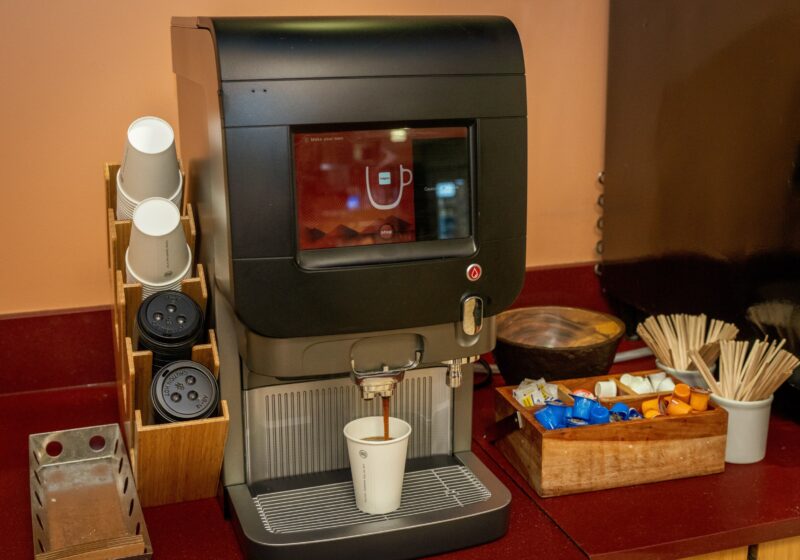Reconciliation was the topic for the address given by Nobel Peace Prize winner Elie Wiesel on Wednesday night to a sold-out audience in Strong Auditorium. The event, sponsored by Outside Speakers Committee, Hillel and UR gave students, alumni and Rochester community members an opportunity to intimately view a figure reputed in issues ranging from the Holocaust to apartheid to the Israeli-Palestine conflict.
“I believe that [reconciliation] is not only a necessary one, it is an urgent one, especially these days,” Wiesel said. With this simple yet profound introduction, the Holocaust survivor began his lecture which ended in a standing ovation.
“[Wiesel] was a fantastic orator. It was beyond what I had expected,” freshman Jared Kanotsky said.
Wiesel, who was born in Romania, spoke of his work as a journalist, professor, writer and witness to the Holocaust. He spoke of the horrors of the 20th century, including the Holocaust, and led the audience into modern-day events from fighting in Israel to the events of September 11.
“The message was inspirational, meaningful and related well to the current generation,” Rabbi Ari Israel from Hillel said.
Wiesel is the author of “Night,” a memoir relating his experiences in the Nazi concentration camps, particularly Auschwitz. He is frank about both his experiences and feelings.
“What can one do when one is faced with hatred?” he asked.
He left many questions to the audience, allowing individuals to reflect upon his words. Giving few answers, Wiesel added, “I believe in questions.”
He did reveal one clue for his listeners. “Whatever answer for essential questions, education is its major component,” Wiesel said.
When speaking on the events of September 11, Wiesel noted that the problems of our past did not dissipate with the dawn of the 21st century.
“Somehow we got convinced that the 21st century would be better. Well, it began and it ain’t that good,” he said with a smile.
Wiesel recalled his own memories of September 11 ? he was in Central Park when the Towers were hit. His anecdotes, though given in Romanian accent, were clearly American.
Wiesel received his U.S. citizenship in 1963 and has spent much of his life in the U.S. He currently is Professor of Religion and Philosophy at Boston University.
He said the events of September 11 were a new brand of terrorism. “For the first time, [the terrorists] left no message. Death was the message,” he said. “I believe [terrorism] must be vanquished.”
Although he took a hard-line on the eradication of terrorism, Wiesel still avoided judgmental comments.
“I am never a judge. I am a witness. But as a witness I must say what I feel,” he said.
Wiesel also touched on the current conflict with Iraq and the ramifications for the world. “I believe Saddam Hussein is a dangerous man,” he said. “We made a mistake in the late ’80s when Saddam Hussein killed his own people. We should have protested on moral grounds.”
He left no doubt that he believes in a realistic compassion and modified sense of reconciliation. “We cannot reconcile ourselves with the idea of constantly living in terror,” he said.
“I do not believe in collective guilt. I do not believe we have the right to pass judgment on a group,” he said.
On the matter of the Middle East, Wiesel avoided partisan views, and rather focused on the need for both sides to convene and learn to understand, characterizing much of the problem as “a lack of education.” He confessed his sympathies with Israel as a Jew, but was quick to point out that he did not understand the entire situation as one who lived in the area of the conflict might understand.
And as for the topic of reconciliation?
Wiesel believes, “the ultimate reconciliation is with one’s self.” Once this has been accomplished, he added, then the reconciliation with others and God can begin.
When asked by a student how he survived the Holocaust, Wiesel was once again blunt and quick to respond. “Sheer accident, chance. I did nothing to stay alive,” he said.
Wiesel makes it his purpose to communicate his story and give others the chance to publish their own accounts of the Holocaust. “Their [the survivors’] literature is the most meaningful literature,” he said.
Wiesel’s own literature has touched the minds and hearts of many throughout the world.
In his lecture last night however, Wiesel did not depend upon this global reputation to reach his audience. Indeed many of his listeners had little knowledge of his history.
“I have heard a number of public speakers. For one who has never read [the works of Wiesel] before I was more touched. I didn’t realize,” sophomore Lee Frankel-Goldwater said.
Junior Anat Kohn was also unfamiliar with Wiesel’s life and works. “I really didn’t know much about him. I felt like learning more about him and what he had to say,” she said.
Wiesel hit on a range of injustices over the last century. Despite his descriptions of these tragic events, he closed his remarks with an optimistic and hopeful tone.
“What I have learned is I don’t want my hope to cause someone else’s despair,” he said.
Additional reporting by Karen Taylor, Kerri Linden and Catherine Egan.
Tanner can be reached at rtanner@campustimes.org.




